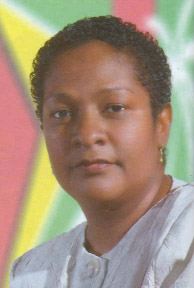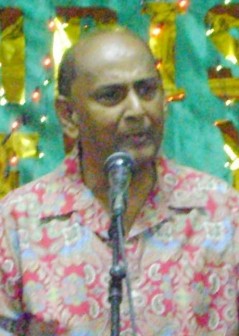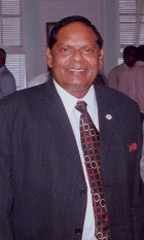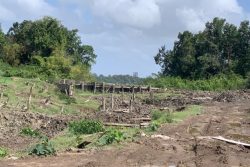In light of the acrimony surrounding the choice of Speaker of the National Assembly, the elections for the regional council for Region Eight (Potaro-Siparuni) could further test ties between APNU and the AFC.
APNU and the AFC have deadlocked over who will be Speaker of the National Assembly with both sides holding steadfastly to their candidates. The AFC is backing Moses Nagamootoo while APNU has proposed either Deborah Backer or Cammie Ramsaroop. APNU and the AFC control 33 votes and could secure the speakership by a simple majority over the PPP/C’s 32.

Region Eight is the only region where the elections did not produce a majority result. The AFC however gained a plurality – the single highest number of seats. However, while winning the region and the parliamentary seat that went with it, the AFC would require support from APNU or the PPP/C to secure the position of chairman of the region when the Regional Democratic Council holds its elections.
The results for the regional elections show that of the 15 council seats, the AFC won 6, APNU 4, the PPP/C 4 and TUF 1. Therefore to secure the position of chairman the AFC would require the support of one party or its en-bloc abstention.
The convention usually is that the party with the highest number of seats would gain support for the chairmanship but political observers say how the election turns out may depend on the state of relations between APNU and the AFC who are engaged in a bruising public campaign over the speakership. Were they not to reach an agreement and the PPP/C ended up securing the speakership, then there may not be sufficient amity in the relationship to assure the chairmanship for the AFC. Other sources suggest that neither the AFC nor APNU would want the PPP/C to control the region – increasingly important as swing votes – and would work out a deal.

Whether Parliament is convened first or the first meeting of the 10 regional councils is unclear. Parliament has to meet not later than four months of its dissolution which occurred on September 22. Its outside date is therefore January 22. With the opposition still deadlocked a date for Parliament very close to January 22 is likely.
As it pertains to the regional councils, Section 20 of the Local Democratic Organs Act says that within seven days following the declaration of the results of any election of councillors, the clerk of the council shall call a meeting of the council not later than 14 days after the declaration to elect a chairman and vice-chairman.

In the other nine regions there is a clear majority. Region Seven (Cuyuni/Mazaruni) has the slenderest and will test the parties to ensure that their members are present for key votes. APNU has eight seats while the PPP/C has six and the AFC has one.
Whereas it had a broader majority in Region 5 (Mahaica/West Berbice) in 2006, the PPP/C has a two-seat majority in 2011. It has 10 seats while APNU has six and the AFC, 2. Region 9 (Upper Takutu/Upper Essequibo) can also be tricky. The PPP/C has eight of 15 seats. APNU has 4, the AFC 2 and TUF 1.
In 2006, the most watched regional council election was in Region Four where for the first since 1992, the PNCR did not have a clear majority. It held 16 seats, the PPP/C 15 seats, the AFC three seats and the Justice For All Party one seat.
There had been intense speculation that one of the two major parties would do a deal with the AFC for the chairmanship. However, when the election was held, the PNCR combined with the PPP/C to secure the chairmanship. Co-operation between the two parties fell away rapidly after that and there were several acrimonious meetings and bitter exchanges between councillors on both sides.





